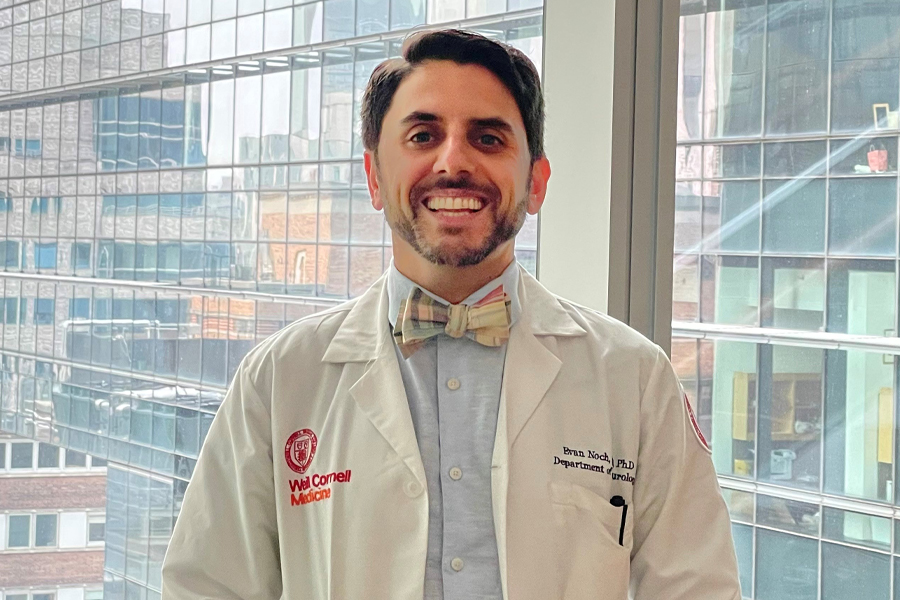
In 2019, Dr. Evan Noch, an assistant professor of neurology at Weill Cornell Medicine, led a team of graduate students to win the “Most Impactful Hack” award at the third annual NYC Health Hackathon, a competition aimed to develop high-tech healthcare innovations. The winning mobile app, Destroke, uses facial, motion, speech and language recognition technologies to help determine if a person has suffered a stroke. After completing a pilot program at the Burke Neurological Institute, Destroke is set to refine its prototype, expand usership and conduct randomized trials with larger patient samples, including one at Weill Cornell Medicine.
Stroke is a leading cause of severe disability and mortality in the United States; however, the National Institutes of Health Stroke Scale (NIHSS) standard BEFAST (Balance, Eyes Movement, Face Symmetry, Arm Strength, Speech, Time) is difficult for patients to remember and to understand its accuracy. Often times, patients rely on Google or WebMD search of their symptoms to self-diagnose, which experts say provide inaccurate information. The Destroke app uses machine-learning algorithms to allow performance of the stroke scale by patients and their loved ones. As Dr. Noch points out, “It’s giving patients more autonomy and more power. It’s what they want – patients want to be able to self-diagnose.”
Destroke incorporates 12 out of the 16 tasks on the NIHSS for its own scale. Patients can answer questions and perform assessment tests at home using their Apple iPhones. Among the 19 patients with a history of stroke who completed the pilot program, five patients’ Destroke scores matched their NIHSS baseline scores for all tests, and seven patients’ app scores matched the baseline score for at least one test. Patients rated Destroke above 4.0 out of 5 for ease to understand and use the app, confidence in ability to detect the signs of stroke, and willingness to use the app if recommended by their doctor after trying this health app between five to nine times in a 28-day period. The majority of patients showed higher confidence in detecting the signs of a stroke after participating in the pilot. This improvement is especially prominent among patients with low confidence scores prior to the study.
The support and guidance of BioVenture eLab, a part of Enterprise Innovation, is instrumental in Destroke’s development. Dr. Noch credits the eLab with “giving us the strength and courage to incorporate, to make a company and to continue to develop.” He participated in the Biomedical Business Plan Challenge and learned to draft a full business plan based on his app idea. During the intensive, multiweek program, he and his team gained expertise in intellectual property, including patents, trademarks and trade secrets, and product marketing. They obtained a trademark for the name Destroke and a full patent.
For next steps, Destroke plans to include coordination and dysarthria tests in future versions of the app and expand to the Android platform. Dr. Noch will also test it with a randomized and more diverse patient population, which includes those with stroke and in patients with higher baseline NIHSS. Dr. Noch notes, “What we envision is that this is a way for patients who have had stroke to follow their symptoms and signs over time to give them more information on their recovery. And hopefully, in the future with appropriately designed studies, to eventually be used for patients and providers to detect a stroke even in a primary case.”
Many Weill Cornell Medicine physicians and scientists maintain relationships and collaborate with external organizations to foster scientific innovation and provide expert guidance. The institution makes these disclosures public to ensure transparency. For this information, see profile for Dr. Evan Noch.

